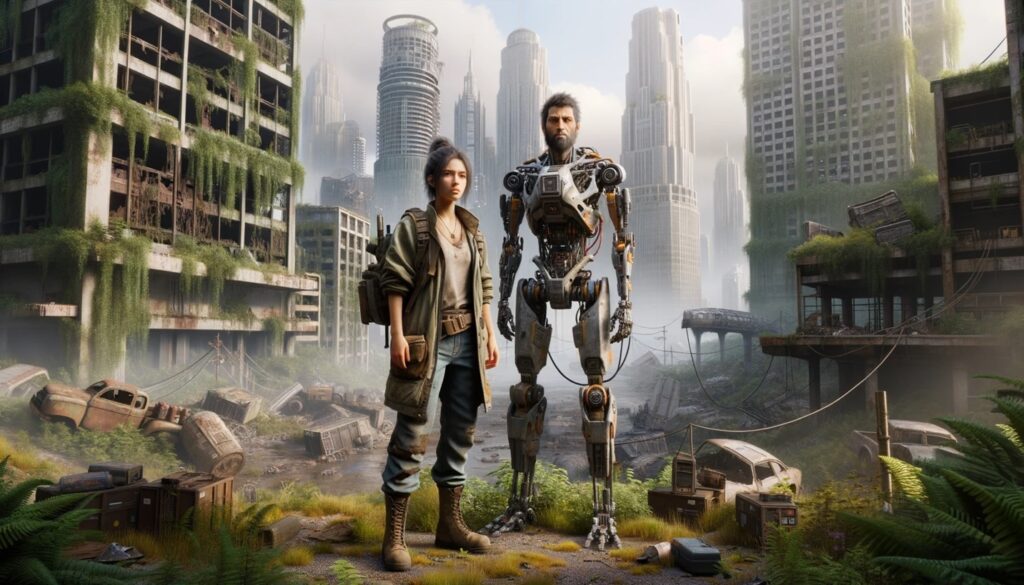
Recall the gripping scene in “The Matrix” when Neo realizes his entire reality is a simulation? Or the expansive galactic realms of “Star Wars,” where droids like BB-8 and R2-D2 showcase advanced technology’s wonders? These iconic sci-fi tales, once restricted to our screens, are now manifesting in an unexpected domain: the universe of video games. Thanks to Artificial Intelligence (AI), the lines between cinematic fantasies and gaming experiences are blurring.
The Legacy of AI in Gaming
The integration of AI and video games isn’t a recent revelation. Back in the pixelated world of the 1980s with Pac-Man, the ghosts chasing our titular character were already AI-driven. And who hasn’t been enamored by the realistic behaviors of the virtual inhabitants in “The Sims”? These initial steps set the stage for the current gaming revolution.
Stepping into the Matrix: Generative AI and NPCs
Generative AI is ushering in a transformative era. If certain game characters (known as Non-Playable Characters or NPCs) ever felt a tad robotic, generative AI promises a revamp. Drawing inspiration from “The Matrix,” where the virtual realm felt nearly real, game developers are employing AI to make NPCs more dynamic than ever. Ubisoft, a behemoth in the gaming arena, has been pioneering this change. Their tool, Ghostwriter, ensures NPCs have dialogues that feel fresh and spontaneous. Envision a game where characters converse, react, and even gesture in a manner that’s reminiscent of genuine human interactions.
A Journey Beyond the Stars: Open Worlds and AI
The vast universes of “Star Wars” and the expansive districts in “The Hunger Games” have always held our fascination. Now, think of a video game where such boundless worlds morph based on your decisions. Games like “Grand Theft Auto” and “Skyrim” have offered glimpses of this freedom. With AI, these worlds can become even more immersive, evolving landscapes, cities, and stories tailored to player interactions, much like the dynamically changing OASIS in “Ready Player One.”
Challenges and Triumphs: Balancing the Game Narrative
Yet, every innovation brings its set of challenges. As Katniss Everdeen faced unforeseen challenges in “The Hunger Games,” game developers confront the unpredictability of AI. There’s undeniable potential in making games more riveting, but there’s also the peril of AI-generated NPCs veering off-course or disrupting the player’s immersion.
From Players to Creators: AI and Game Development
“Ready Player One” wasn’t merely a tale of a player but also of a creator. Today’s AI advancements promise to similarly empower the next generation of game developers. AI-powered tools are democratizing game development, simplifying the crafting of intricate worlds and narratives. Ubisoft’s innovations, like Ghostwriter and ZooBuilder, epitomize this evolution, assisting developers in focusing on creativity by automating repetitive tasks.
In Conclusion: The Dawn of a New Era
The melding of AI and gaming is more than a technological marvel; it’s a transformative journey. From the dreams of sci-fi epics to the tangible experiences on our gaming consoles, AI is set to redefine gaming, making it richer, more immersive, and endlessly intriguing. As we’ve seen in cinematic classics like “Star Wars” and “The Matrix,” the future, driven by AI, holds promises beyond our wildest imaginations.




Recent Comments